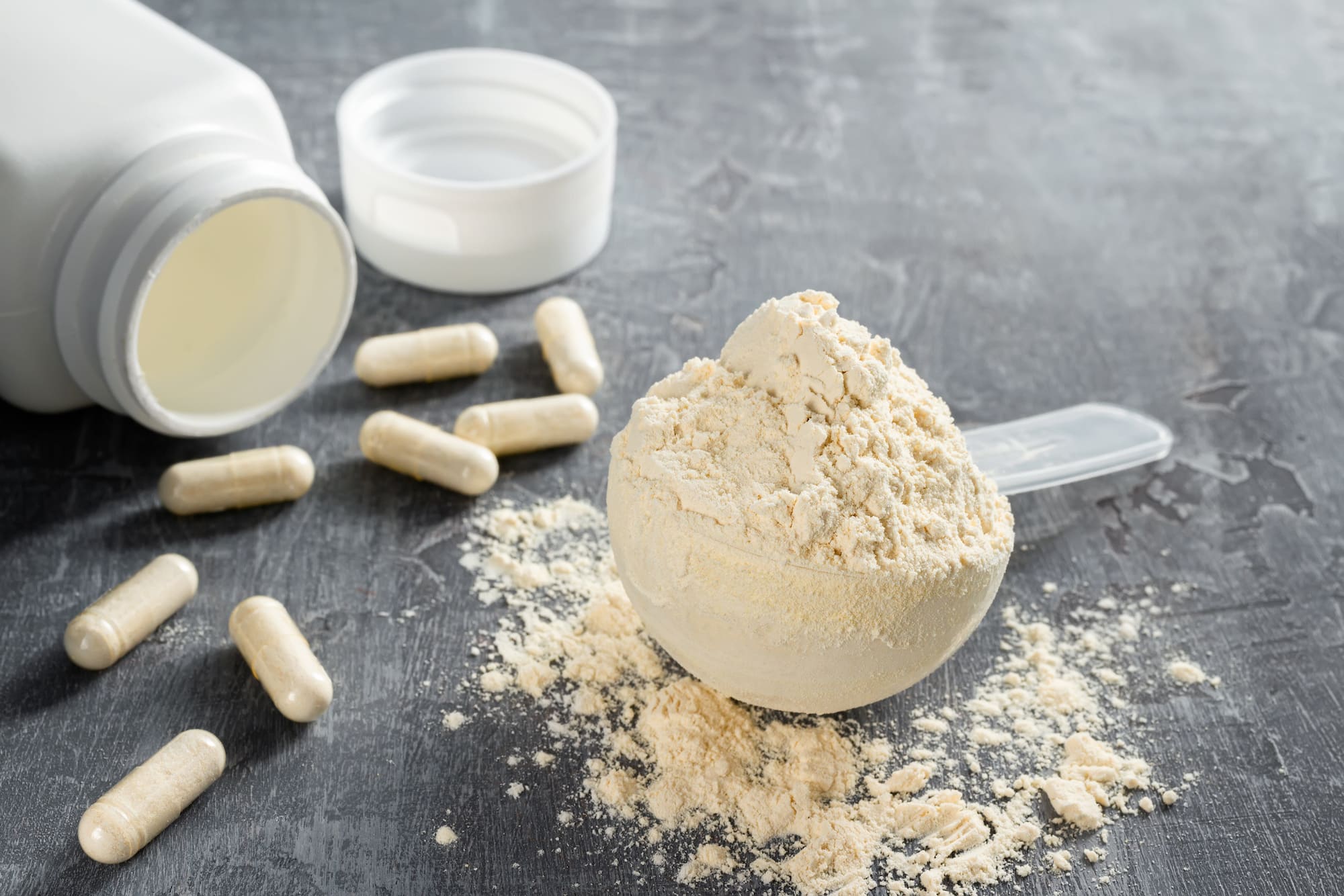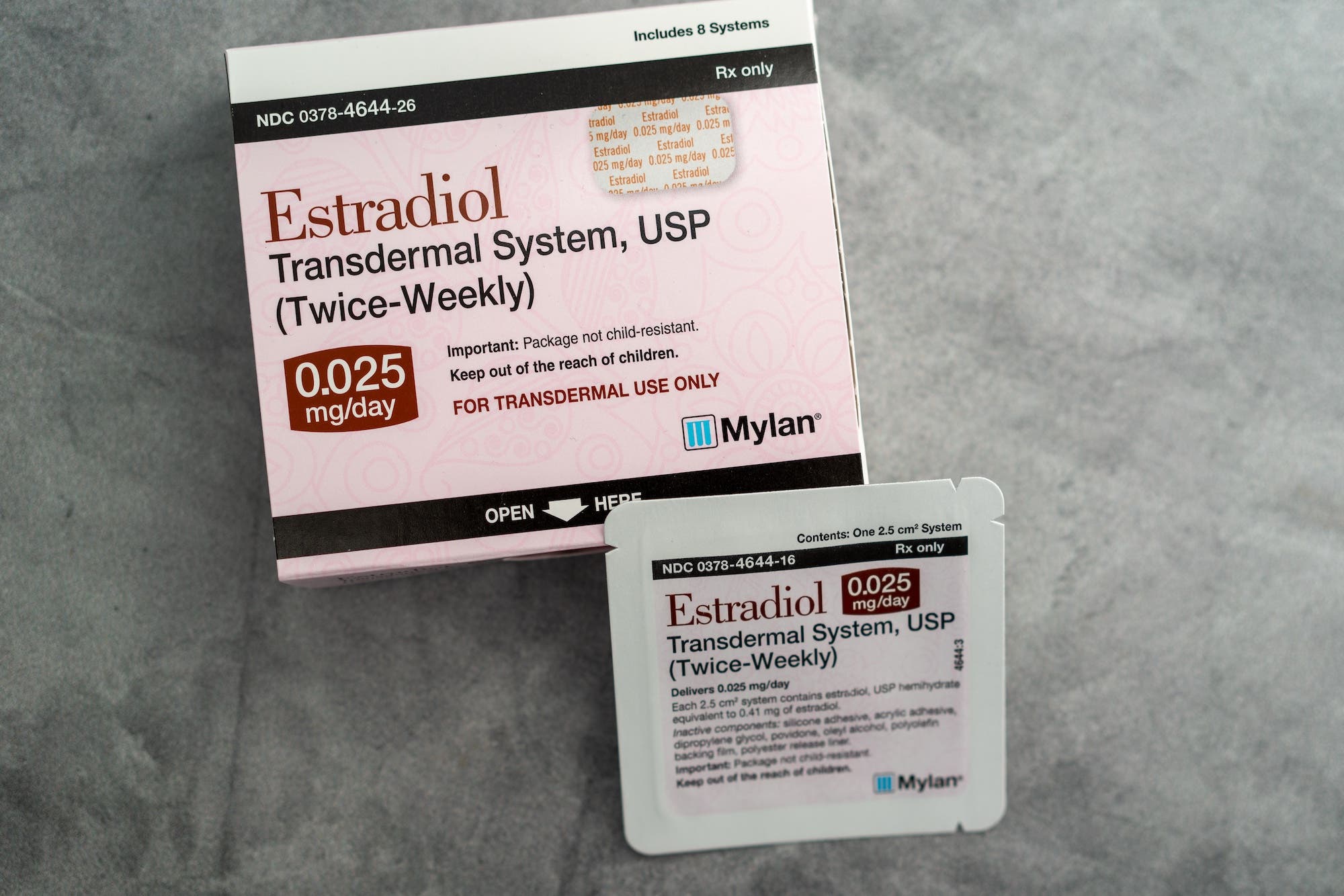Fertility can be affected by a vast number of factors, from lifestyle to genetics. But there is a growing body of research indicating which specific nutrients we need to give our bodies the best chance of functioning fertility. One amino acid that seems to be vital for male fertility is taurine. Let’s explore what taurine is, how it affects male fertility and sperm health, and how we can incorporate it into our diet.
Key takeaways
- Taurine is an amino acid that plays an essential role in many key functions within our bodies.
- It can help with brain, muscle, and eye health.
- Taurine is made naturally by our bodies once we are past infancy, but we can supplement our levels naturally through diet.
- Taurine deficiency has been linked with poor sperm health, lower sperm count, low testosterone, and low libido — but supplementation can help these issues.
- Taurine has many positive benefits and can be an important addition to a supplement routine when looking to boost male fertility.
What is taurine?
Taurine is a naturally occurring amino acid that contains sulfur. Amino acids are the building blocks of proteins. Taurine was first isolated around the 1800s, but it has only come under scrutiny since the 1990s, when scientists began to examine its vital role in our bodies’ health. In most mammals — including humans, some primates, and rodents — taurine is a conditionally essential amino acid.
Humans can make taurine in their bodies, which means deficiency is unlikely in healthy adults, but newborns do not have this ability. It is typically obtained through diet and is crucial to our eye, muscle, and heart function. Foods that are good sources of taurine include meat, seafood, nuts, soya, and human milk. It is highly concentrated in breast milk, and taurine is especially important during neonatal development. This is one reason new mothers are encouraged to breastfeed where possible and supplement a newborn’s diet with taurine-enriched formula if it is not possible.
Taurine is present in large concentrations within your brain, muscles, heart, and eyes. It is an added ingredient in many energy drinks due to the influence of taurine on exercise performance.
Taurine plays a number of roles in our bodies, including:
- regulation of minerals, such as calcium, in cells
- maintenance of hydration levels and electrolyte balance
- supports a functional central nervous system
- supports eye function
- formation of bile salts required for digestion
- regulation of antioxidant function and immune system health
- protection of cell walls and essential fatty acids from oxidation
Generally, our bodies are good at producing the small amounts of taurine needed for the above functions, but higher doses are required when we are ill or during times of stress. During stressful periods, supplementation or a change in diet to increase taurine-rich foods may be necessary.
Why do people take taurine?
In 1985, Japan was the first country to approve taurine for treatment of heart failure patients, and this has sparked numerous studies investigating how taurine supplementation affects our health. Studies show taurine can protect against many health issues related to mitochondrial defects. These include:
- aging
- mitochondrial diseases
- metabolic syndrome
- cancer
- neurological disorders
- neurodegenerative diseases
- cardiovascular diseases
Mitochondrial dysfunction and oxidative stress are often used to identify the health issues mentioned above and are now frequently treated with antioxidant therapy, such as supplements with coenzyme Q10 and melatonin, among others. Taurine can be used to treat those at high risk of stroke via supplementation and can be an effective treatment to improve the exercise capacity of patients with heart failure. Scientists say this is likely due to the improvement of myocardial energy production after supplementation.
Taurine has anti-inflammatory and antioxidant properties, and these may enhance insulin sensitivity. Researchers believe this is why taurine may help those with type 2 diabetes manage their blood sugar.
Can taurine improve male fertility?
Taurine is present in the sperm and seminal fluid of many species. It is known to play an essential role in sperm motility (movement) and morphology (shape).
In 2018, a published study linked taurine deficiency in sperm to male infertility. The research team noted that sperm with taurine deficiency showed reduced morphology, which can significantly impact fertility. Taurine is thought to be an integral component in the regulation of water in and out of the sperm; without this regulation, the shape and size of the sperm may be altered or damaged.
Taurine and sperm count
Taurine production declines with age, and this can affect your sperm count. Therefore, supplementation with taurine can significantly improve male fertility by improving sperm count.
Taurine and sperm quality
Taurine deficiency has been linked with poor sperm morphology. Sperm morphology refers to the shape, size, and structure of sperm. Studies show taurine is required for successful fertilization as deficiencies double the risk of tail defects developing, which in turn prevents sperm from being able to move toward and reach the egg. Sperm cannot make their own taurine but must absorb it from the male genital tract. Absorption of taurine at this point allows sperm to maintain their shape and vitality. These defects can be negated when extra taurine is supplied, allowing for smooth passage and entry to the egg.
Taurine and testosterone
Research suggests taurine can raise testosterone production without raising the concentration of estradiol, which can slow down sperm production. A study in Amino Acids found supplementation with taurine stimulated testosterone production.
Taurine and libido
Studies also show taurine may increase luteinizing hormone (LH) levels. The pituitary gland produces LH, and deficiency of this can cause a lack of sex hormone production. LH is associated with libido, therefore those who do not have sufficient taurine in their diet, may suffer from low sex drive. Supplementation and a change of diet to include taurine-rich foods may help boost libido, which could positively impact fertility.
Other benefits of taurine
There are other benefits of taurine you might not be aware of:
- Taurine may reduce stress and promote mood improvement. It works alongside GABA and glycine to promote feelings of calm and relaxation.
- Taurine may support a healthy metabolism and aid weight loss. Low levels of taurine can be associated with obesity by helping glucose metabolism.
- Taurine may boost energy and athletic performance.
- Taurine may offer neuroprotective benefits due to its anti-inflammatory effects, which could pave the way for helping those at risk of developing neurodegenerative diseases such as Alzheimer’s disease.
How to take taurine
Taurine supplementation is well tolerated and has been associated with few side effects. It is widely regarded as a very safe supplement with many benefits. The recommended serving size is up to 3g per day. It is usually taken in capsule form, dissolved in water, or taken sublingually (under the tongue). An alternative option is to boost your levels of taurine through food consumption. Try to include more of the following in your diet:
- seafood, including mussels, clams, squid, and octopus
- turkey and chicken (dark meat)
- white fish and tuna
- beef
- pork loin
- cured meats
Due to the high number of animal-based sources of taurine, vegetarians and vegans could be at higher risk of taurine deficiency and may require supplementation. Experts advise that the source of the supplement is checked before consumption to ensure it is not derived from animals.
Energy drinks often include high doses of taurine, but they also contain lots of substances that can be harmful when consumed in large quantities. So be sure to check the ingredients list before ingesting.
Other supplements that may benefit male fertility and hormone health
There is growing evidence that supplementation with certain nutrients can positively impact male fertility and hormone health. These include:
- CoQ10
- L-carnitine
- vitamins D, C, and E
- folate
- selenium
- lycopene
- D-aspartic acid
- zinc
- ashwagandha
- fenugreek
- maca root powder
- Omega-3 fatty acids
- Tribulus terrestris
For more information on these beneficial supplements and how they can help you on your fertility journey, click here. Or learn about Legacy’s male fertility supplement, which contains 10 active ingredients to support your reproductive health.



